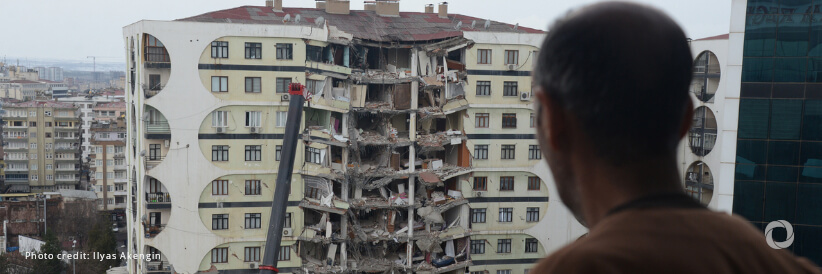Throughout 2023, working with the UN family and partners, UNOPS responded to help vulnerable communities across the world.
Ukraine
In Ukraine, as the conflict continues, millions of people across the country have been left without access to basic services such as electricity and heating. With much of the country’s infrastructure destroyed or severely damaged, providing support to affected communities is an urgent priority.
“It’s great that help is coming our way, and we are incredibly grateful,” says Vasyl Maslii. “I just hope all the essentials are done by the winter, and no more damage is inflicted in the meantime.”
Ethiopia
The conflict in northern Ethiopia has had a devastating impact on millions of people and left communities, including those in Tigray, without access to basic services. UNOPS is implementing a project aimed at rebuilding and improving access to basic services and climate-resilient community infrastructure, working with local committees to rehabilitate and improve access to social services such as water, sanitation, health, and education, to support 600,000 people.
Haiti
Less than half of Haiti’s population has access to electricity. UNOPS is working with partners to equip five hospitals – together delivering healthcare services for more than 500,000 people in the country, with hybrid solar power systems providing the facilities with a clean, reliable source of energy. On average, the hospitals will be able to run for up to 20 hours on electricity generated entirely by these systems.
“The solar power systems play a critical role in the operation of these hospitals – over-reliance on diesel to generate electricity is being significantly reduced and essential activities such as emergency care, surgery, and maternity services can continue uninterrupted,” says Dabagai Dabagai, UNOPS Country Director in Haiti.
Pakistan
In Pakistan, the impact of the 2022 floods continued to be felt. Damage was widespread, with communities in rural areas being particularly hard hit. The UN estimated that the once-in-a-generation weather event claimed over 1,700 lives and affected the lives of 33 million more. At its peak, the floods left a third of the country under water and marooned entire regions.
“When the water reached five feet, then we didn’t go back. What we brought, we had, what we lost was lost,” says Mir Muhammad Jamali.
Yemen
Over the past 8 years, the ongoing conflict in Yemen has left more than 20 million people in need of humanitarian assistance and has significantly deteriorated the health of people across the country. Maternal health, child malnutrition, immunization rates, and outbreaks of communicable diseases, in particular, have worsened, putting additional strain on already overstretched health services. In Yemen, the rehabilitation of key public health facilities is enabling doctors to provide better care.
“The hospital could not provide efficient or high-quality services because it was dilapidated. We were facing a lot of difficulties in our work. Doctors would sometimes need to overprescribe antibiotics to try to prevent the spread of infectious diseases,” says hospital director Dr. Majeda Al Kateeb.
“After the hospital was renovated, the situation changed drastically. Now, we are more comfortable. We can coordinate and organize our work better. The situation is completely different,” says doctor’s assistant Sumia Taha.

